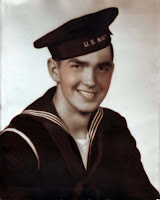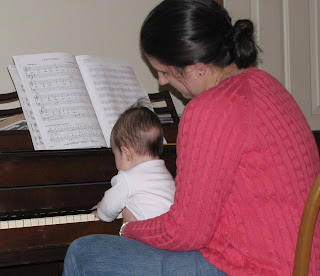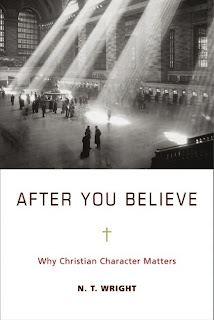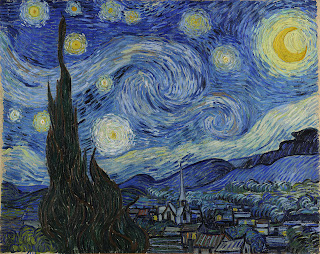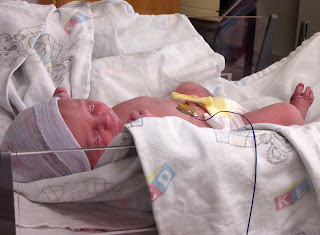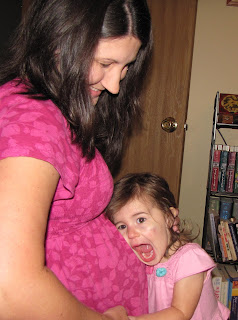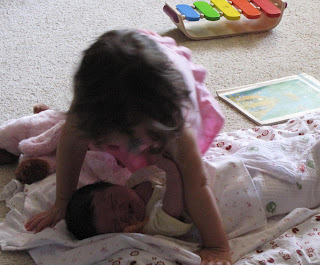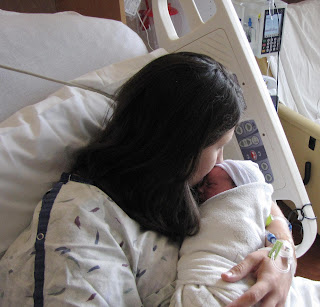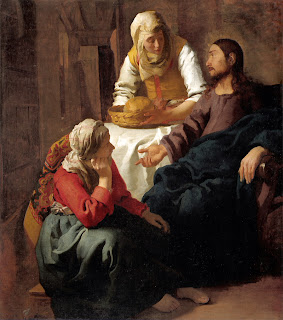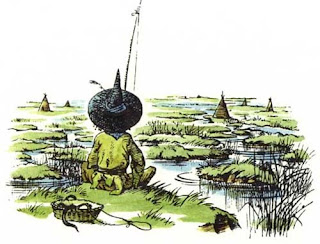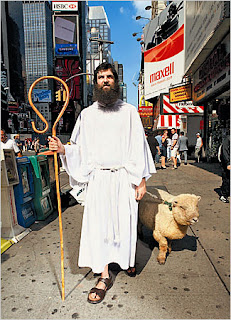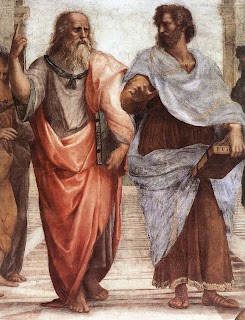Our family has been struck again, less than a year after our Kristina died, and I am reminded of how much I hate cancer, of how much I hate death.
Category Archives: heart
Don’t Follow Your Heart
When my grandparents were young, during World War II, during the age of Nazi Germany and the Japanese Empire, people were told that they should have the courage to stand up for what is right.
These days, I hear a lot of people say that we should all have the courage to follow our hearts.
After all, something done spontaneously has more validity, right? Something that comes from the heart means more than something that took a lot of effort?
I hear this from Christians, as well as from the secular world. We are told to take a risk, to have the courage to follow our hearts, our passions, our dreams. We are told that God uses our passions for His glory, so we should take financial and emotional risks, even risks to our family, to do what we are passionate about.
This is what many are taught to believe that Jesus came to model and teach: that “to thine own self be true” is the central goal and task of every man.
This actually sounds a bit like Gnosticism, a philosophy that John spoke out against in the New Testament.
Although an ancient philosophy, see if this sounds familiar today: There is a spark of light hidden in us underneath layers of social and cultural conditioning. Whatever we most truly find within ourselves is right. My heart tells me how things truly are and I must go with my heart.
May I please decry the idea that something done spontaneously has automatic validation while something that is done while following orders or after careful reflection is less valuable or even hypocritical? Thinking carefully about a course of action does not mean that you are being false to yourself.
This all reminds me of the romantic idea of art vs what art really is. The romantic says that art should be effortless, that it should just flow from your heart and soul. The true artist, whether visual arts, music, dance, writing, or any other genre, knows how much hard work and practice it takes to get to the point of seeming effortless.
Perhaps it takes more courage to stick with the hard task, to continue working to provide for your family, to practice patience and self-control every single day than it does to just throw it all away and follow your heart’s desire.
Then He said to them all: “If anyone would come after Me, he must deny himself and take up his cross daily and follow Me.” ~ Luke 9.23
In After You Believe: Why Christian Character Matters (you will be hearing more from this book in coming weeks!), N.T. Wright says that following your heart
tries to get in advance, and without paying the true price, what virtue offers further down the road, and at the cost of genuine moral thought, decision, and effort.
I am not suggesting that what you do only has merit if it is dull and drudging work or that doing what you love is wrong. Yes, God does use our gifts and talents. Yes, sometimes God does call us to do something crazy, something that our world would call foolish.
What I am suggesting is that we should test what is in our hearts before we blindly follow. We should spend time with God, seeking to know what He wants rather than assuming that what is in our hearts is right.
I don’t know about you, but my own heart can be incredibly fickle.
A person may think their own ways are right, but the LORD weighs the heart. ~ Prov. 21.2
Perhaps doing only what we love is not always the godly path. More often than not, it seems that the godly path is the harder road to follow.
I promise you, though, it is well worth the work and effort.
Just like a beautiful piece of art.
art credit: Shakespeare playbill; Vincent van Gogh’s The Starry Night
What will you do when God says "no"?
What do you do when you don’t get your way?
My eldest screams with a red hot rage and sobs tears of hurt and disappointment.
As much as I would like to hold my head up high and speak with condescension about the ways of a child, I can’t. Instead, I will bow my head with shame and confess that, even if I don’t do it out loud or in front of people, I have much the same reaction in my deepest places.
I received another “no” from God this week.
It really hurt. Yet another of my well-laid plans was swept away with the dust of a hope.
I do gain deep peace and joy from knowing beyond a doubt that the only reason that God said “no” was because that wasn’t what was best.
And, just as I wrote recently, my heart still grieves.
There is a piece of me, that child that can’t seem to grow up, that wants to shout and rage and stamp its foot and demand a “yes” from God.
The desire, the temptation, is not wrong. As I often tell my eldest, the feeling is not wrong, but what you choose to do can be either wise or foolish.
So what did I choose to do?
This time (I wish that I could say “every time”) I chose what was wise.
With tears, I praised God.
I thanked Him for telling me “no” because I trust that it was best, that it was done out of love.
Then I went to church and worshiped.
If I hurt, am I really trusting?
My eldest has a new fear.
Any time my husband gets into the driver’s seat of our car while I am still out of the car, my eldest is convinced that he is about to leave me. She begins sobbing and yelling, “Daddy, don’t leave Mommy! Daddy, don’t leave Mommy!”.
The usual response is, “Sweetheart, have I ever left Mommy?!”
Apparently, that has nothing to do with anything.
I sometimes get frustrated with the apparent lack of trust that my daughter has in both of her parents, regardless of how many times we have proven ourselves to her.
“Why won’t you trust me?” I ask her. “Have I ever (you fill in the blank!) before?”
When I stop to think about it, though, I completely understand. So often I decide that this is the time that God is not going to care for me, no matter how many times before He has proven His goodness and His love.
How many times does He have to prove Himself to me before I will finally trust that He will do what is best for me, even when I can’t see it?
Recently, though, I have been struggling with a different sort of trust issue.
While Kristina struggled for life and in the early days of Mike facing life as a single parent, God helped me to work though how we trust Him in the darkest times.
Now there are different hard times.
I want to publish these words of mine. So far, God says no.
We want another baby to add to the beauty and joy of our family. So far, God says no.
I thought I was trusting Him in these things. After all, if I could trust Him through horrible pain and ugly death, surely I can trust Him in this also.
I trust that if He is saying no to my desires it is because He has something infinitely more beautiful in mind.
Yet it still hurts.
Why does it still hurt if I trust that God is love?
How can my heart feel as though it is breaking if I trust that God is good?
If I hurt when God says no, does that mean that I am not truly trusting?
This. This is what my heart and my head have been struggling with.
Then one night I was praying while nursing my youngest and God brought to my mind the image of Jesus in the Garden, praying so fervently His sweat fell like drops of blood, praying in anguish that He would not have to face what was coming.
And being in anguish, he prayed more earnestly, and his sweat was like drops of blood falling to the ground.
It was as though God was laying a soothing hand on my troubled heart and telling me to look at His Son.
Of all who have ever walked this earth, Jesus trusted God. Jesus trusted that God is good, that God is love, that whatever God chooses is the very best, most beautiful thing.
And yet He still hurt. He still prayed in anguish and cried out to God to save Him.
So perhaps I am still trusting after all. Perhaps it is okay to hurt when God’s plans turn out to be something other than what I desire.
I will try not to doubt myself so much. I will try to allow myself to weep, to cry out to God in pain and disappointment, while still knowing that
He who did not spare His own Son, but gave Him up for us all — how will he not also, along with Him, graciously give us all things?
art credit: Gethsemane by Carl Bloch
Photographs of Love
Can I Really Know God?
“This is one of the most beautiful things to me.”
I look at her, my mommy-shepherd, wanting her to continue.
“A mother who knows her baby, who knows what her baby needs by being completely attuned to the cues her baby gives her.”
Yes. This is beautiful.
Our conversation drifts to the back of my mind until I am reading Psalm 139, which begins like this:
O Lord, you have searched me and you know me.
My mind leaps back to the beauty of a mother knowing her baby as I read more of the psalm:
…you perceive my thoughts from afar…you are familiar with all my ways. Before a word is on my tongue you know it completely, O Lord…For you created my inmost being; you knit me together in my mother’s womb…All the days ordained for me were written in your book before one of them came to be.
God knows me.
God, the One Who weighs the clouds heavy with snow, knows me even more deeply than a mommy can know her baby.
This is beautiful.
And then I read something that I have read many times. This time, with the beauty of God’s knowledge of me fresh in my mind, I am stunned.
Now we see but a poor reflection as in a mirror; then we shall see face to face. Now I know in part; then I shall know fully, even as I am fully known.
The wonder of this takes my breath away and I want to check, to be sure this is true.
I know that the Old and New Testaments were written in different languages, but I check my Strong’s for the meanings of “know” in both chapters and they are remarkably similar. It is the same kind of knowing.
We will know God as deeply as He knows us.
Stop for just a moment and let that fill up your heart.
Lately my heart has been too full of the mystery of God. I often struggle to see Him in the midst of the busyness, the hurts and disappointments of life.
My heart needs to hear this, to savor it: God wants me to know Him.
I search for more of this truth. If you, too, need this, go slowly. Let God breathe these words into your distant heart and draw you close to Him.
I am the good shepherd; I know my sheep and my sheep know me – just as the Father knows me and I know the Father.
I keep asking that the God of our Lord Jesus Christ, the glorious Father, may give you the Spirit of wisdom and revelation, so that you may know him better.
For I desire mercy and not sacrifice, and the knowledge of God more than burnt offerings.
This is what the LORD says: ‘Let not the wise man boast of his wisdom…but let him who boasts boast about this: that he understands and knows me, that I am the LORD.’
I will give them a heart to know me, that I am the LORD.
I am filled with this beauty.
God knows all of the deepest pieces of me and in all of His knowledge of my dark places, He desires that I know Him just as deeply.
Beautiful.
Scriptures in order: I Corinthians 13.12; John 10.14-15; Ephesians 1.17; Hosea 6.6; Jeremiah 9.23-24; Jeremiah 24.7
Painting is Christ in the House of Martha and Mary by Johannes Vermeer
A Psalm of Love
Follow the Signs
May we continue our conversation from last week?
Reality is hard.
Our family has become steeped in pain and loss.
Many others suffer far greater tragedies.
Reconciling the hurt with the heart of God is hard.
It is tempting to add a veneer of softness, to speak in cliches that turn raw, ripped-open pain into a lie.
Sometimes this is even encouraged among those of us who follow Christ.
Yet to do this denies that we are real, that our hearts can be ripped in two, that our pain and loss can suffocate and almost overwhelm us.
To do this denies that Christ is real, that His body and heart were also ripped apart.
My God, my God, why have you forsaken me?
All through the Bible, God seems to not place much importance at all on whether we are free from pain or suffering.
Abel. Abraham. Joseph. Moses. Uriah the prophet. John the Baptist…Jesus’ cousin. All of the apostles…Jesus’ closest friends.
Understanding why Kristina had to die is hard.
I might never know the reason.
God’s purposes are not for me to understand His plans: His plan is for me to understand Who He is…Faith is this unwavering trust in the heart of God in the hurt of here. (Ann Voskamp, A Holy Experience)
Can I trust in the heart of God?
“Once and for all,” said the prisoner, “I adjure you to set me free. By all fears and all loves, by the bright skies of Overland, by the great Lion, by Aslan himself, I charge you –”
“Oh!” said the three travelers as though they had been hurt. “It’s the sign,” said Puddleglum. “It was the words of the sign,” said Scrubb more cautiously. “Oh, what are we to do?” said Jill.
It was a dreadful question. What had been the use of promising one another that they would not on any account set the Knight free, if they were now to do so the first time he happened to call upon a name they really cared about? On the other hand, what had been the use of learning the signs if they weren’t going to obey them? Yet could Aslan have really meant them to unbind anyone – even a lunatic – who asked it in his name? … They had muffed three already; they daren’t muff the fourth.
“Oh, if only we knew!” said Jill.
“I think we do know,” said Puddleglum.
“Do you mean you think everything will come right if we do untie him?” said Scrubb.
“I don’t know about that,” said Puddleglum. “You see, Aslan didn’t tell (Jill) what would happen. He only told her what to do. That fellow will be the death of us once he’s up, I shouldn’t wonder. But that doesn’t let us off following the sign.”
We aren’t guaranteed that anything here on earth will turn out okay. I wish we did have that promise.
Instead, if we have nothing else (and we do have so much else!), if we can turn to and trust nothing else, we have the cross.
After his wife of only four years had died of cancer, C. S. Lewis said
If only I could bear it, or the worst of it, or any of it, instead of her…But is it ever allowed? It was allowed to One, we are told, and I find I can now believe again, that He has done vicariously whatever can be so done. He replies to our babble, “You cannot and you dare not. I could and dared.”
And so I find that perhaps, after all, it does not matter why. It does not matter from whence came the hard thing.
If God ever had to prove anything, at the cross He proved His love, His promise to work for the best of all He created.
It is not a bad thing to seek for the why’s and how’s and from where’s. God is able to handle our questions, our fears.
Yet if we never get any answers, if we never know the reasons, if we never understand, we who have chosen to follow Christ, who have allowed Jesus to be the Lord of our lives, we who have embraced His sacrifice of love…
We aren’t let off following the signs.
Art Credits: Photograph of Cross wooden statue by Asta Rastauskiene; Marsh-wiggle picture (I was not able to find the original); Rembrandt’s The Three Crosses
This is Hard.
Grief is hard.
While the rest of us can return to our lives and, for at least a few hours, forget, my brother is faced with his new reality every moment of every day.
The loss of his beloved, now a single daddy…
Reality is hard.
I want to know God and part of knowing Him must involve reconciling what I see around me to what I know of Him through His Words.
The seeking results in ideas and wonderings that reverberate through my heart.
You have walked with me through many of my searchings in the darkness. Will you join me for a few more?
Does God send suffering? Does He send pain?
Some would recoil at the idea.
But why? We see pain result in good all the time in our world. Go to any hospital and look around.
I talk with my youngest brother about this.
He of the scientific bent points out that many things that sometimes have “tragic” results are very important to the existence of the earth, even to our own existence: without wildfires, ecosystems would collapse; without seismic and volcanic activity, our earth could not refresh itself; hurricanes aid island ecosytems; the gene mutations that sometimes produce cancer prevent us from all being clones.
The Bible seems to suggest that God does, at least sometimes, send bad things:
We do not want you to be uninformed, brothers, about the hardships we suffered in the province of Asia. We were under great pressure, far beyond our ability to endure, so that we despaired even of life…But this happened that we might not rely on ourselves but on God, who raises the dead. ~ II Corinthians 1
As he went along, he saw a man blind from birth. His disciples asked him, “Rabbi, who sinned, this man or his parents, that he was born blind?” “Neither this man nor his parents sinned,” said Jesus, “but this happened so that the work of God might be displayed in his life.” ~ John 9
Perhaps, though, whether or not He sends them doesn’t matter.
Bad things happen.
If God doesn’t send them, He certainly has the power to stop them. Yet He chooses to allow them to happen.
Well, take your choice. The tortures occur. If they are unnecessary, then there is no God or a bad one. If there is a good God, then these tortures are necessary. For no even moderately good Being could possibly inflict or permit them if they weren’t. Either way, we’re for it. (C.S. Lewis, A Grief Observed)
Either way we are left trying to reconcile these things with the God that we know to be good.
We are left trying to reconcile the hurt with His heart.
There are tears everywhere and God catches them, puts them into His bottle.
God is always good and we are always loved. Loved enough to be shaped into goodness of Christ Himself. (Ann Voskamp, A Holy Experience)
This reconciliation is hard.
How have you done this? How have you reconciled these hard things with the character of our God?
Will you join me next week as I search through these ideas even more?
You Are What You Do
“I don’t feel like obeying today.”
The weird thing is, I think my G-rated language is making me a less angry person. Because here’s the way it works: I’ll get to the subway platform just as the downtown train is pulling away, and I’ll start to say the F-word. I’ll remember to censor myself. So I’ll turn it into “fudge” at the last second. When I hear myself say “fudge” out loud, it sounds so folksy, so Jimmy Stewart-ish and amusingly dorky, that I can’t help but smile. My anger recedes. Once again, behavior shapes emotions.
Historically, the handshake was seen as a democratic gesture…But nowadays, I think the bow has more benefits. Though it may seem pretentious, it’s actually deeply humbling. Just lowering yourself before someone – the universal symbol of modesty – makes you feel more respectful. Behavior shapes your thoughts.
Is it odd that I’m finding wisdom in a comedian?
Yet God did create us with physical bodies, and our physical condition, whether health or posture, does seem to affect our emotions.
If a comedian isn’t authoritative enough, how about Aristotle?
Aristotle also believed that your actions shape your heart:
Men acquire a particular quality by constantly acting a particular way…you become just by performing just actions, temperate by performing temperate actions, brave by performing brave actions.
He also said:
We are what we repeatedly do.
So perhaps, after all, it is not hypocritical to do right things when our hearts are rebelling.
Perhaps, instead, this is how we train our hearts to desire right things.
Perhaps, too, paying attention to our physical bodies, such as our posture while praying, can help us to keep our hearts focused.
And since finding wisdom in a comedian and in an ancient philosopher should never be enough for us, God also gives us instructions for our physical bodies in order to help our hearts become truly His:
These commandments that I give you today are to be upon your hearts. Impress them on your children. Talk about them when you sit at home and when you walk along the road, when you lie down and when you get up. Tie them as symbols on your hands and bind them on your foreheads. Write them on the doorframes of your houses and on your gates. ~ Deuteronomy 6.6-9
Which commandments had God just given them?
Ah. The most important of all.
Love the LORD your God with all your heart and with all your soul and with all your strength. ~ Deuteronomy 6.5
Image credits: A.J. Jacobs from The Year of Living Biblically; cropped from The School of Athens by Raffaello Sanzio



